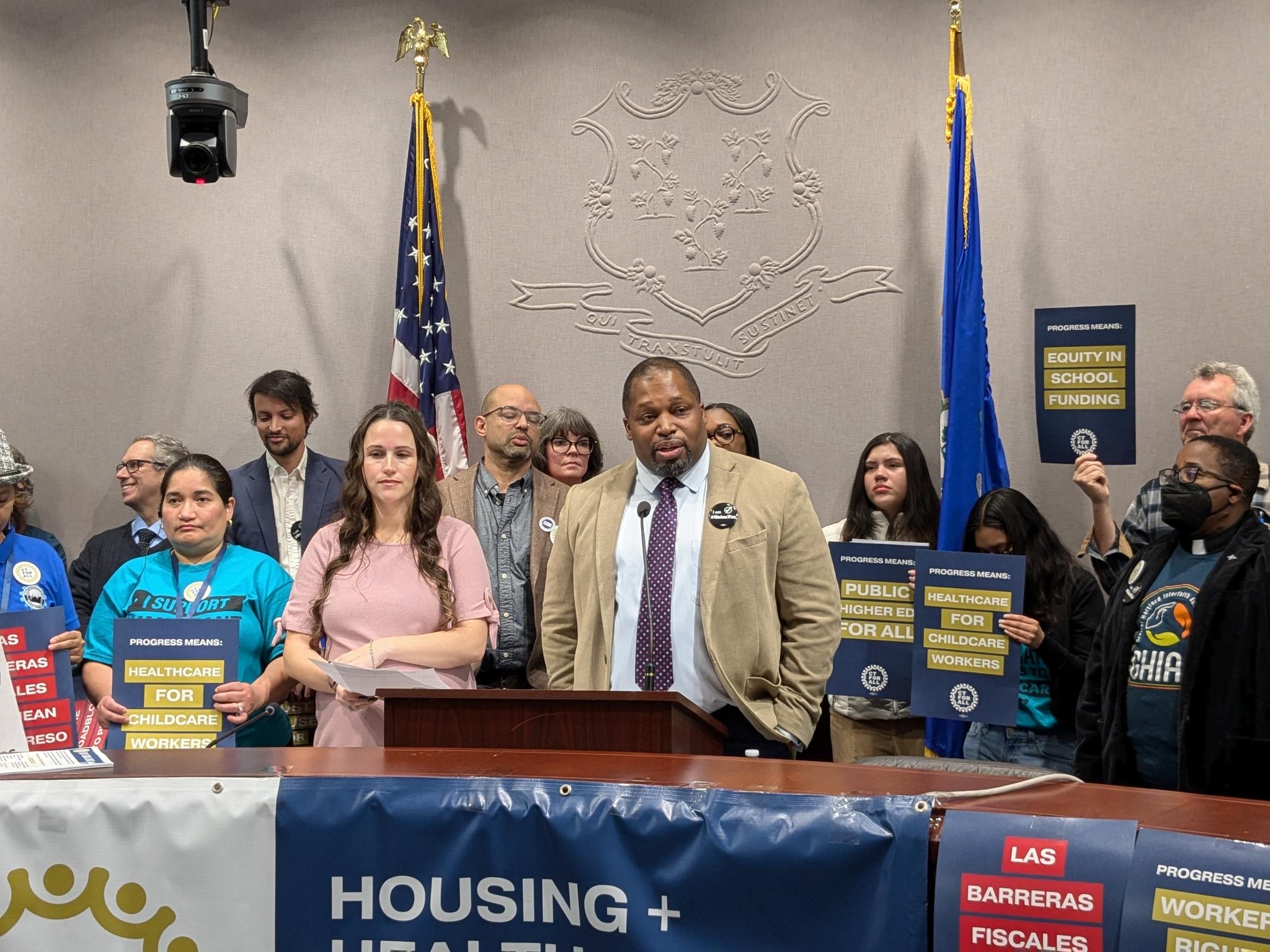Advocates, Lawmakers Call for Budgetary Flexibility
By Hugh McQuaid
January 16 @ 11:23

A coalition of Connecticut advocates, labor leaders, and state legislators crowded into a Hartford conference room Tuesday to make a case for more budgetary flexibility to fund critical investments in education, housing and health care.
The group, called Connecticut For All, argued for modifications to a set of budgetary constraints that include caps on state spending and a requirement that certain revenues be set aside to eventually be used to pay down state debt. In recent years, these restrictions have resulted in supplemental debt payments totaling more than $8.5 billion.
Proponents of modifying these rules argue that these fiscal guardrails have captured a greater share of state revenue than intended and forced Connecticut to underfund certain critical services despite years of budget surpluses.
“It doesn’t matter where you live in this state, this issue affects you,” Sen. Gary Winfield, D-New Haven, said. “This is an issue that makes it harder for people all across the state, who never imagined this would touch them, to do the things they need to do — the necessary things they need to do.”
The coalition outlined an agenda for this year’s legislative session, during which lawmakers will craft a two-year state budget. The group called for a variety of investments including additional state funding for Connecticut school districts and the restoration of a child tax credit, as well as fair wages and benefits for a range of publicly funded workers.
Rob Baril, president of health care workers’ union, SEIU 1199, said the group would seek improvements in how budget dollars are allocated.
“We formed this coalition because we believe that we shouldn’t have to make choices between funding health care and funding education, between funding child care and making sure that we have the infrastructure that all people in Connecticut need,” Baril said.
Jenny Graves, a special education teacher who serves as vice president of the New Haven Federation of Teachers, called for changes to the state’s Education Cost Sharing formula — a program the state uses to offset the costs of local school districts — as well as livable wages for paraeducators.
“Year after year, we see billions in surplus from our fiscal policies,” she said. “It’s time to modify the fiscal roadblocks and invest in equitable education for all, especially our students with special education needs. The time for action is now.”
The event followed a Monday press conference, where Democratic leaders in the House and Senate announced their plans to prioritize education funding and housing policy during this year’s legislative session.
Senate Democrats have also argued for modifications to Connecticut’s fiscal guardrails. Last month, Senate President Martin Looney told the Connecticut Mirror that the chamber’s majority Democrats intended to make changes to the budgetary constraints.
“We won’t call any budget for a vote in the 2025 session if it doesn’t include some changes to the guardrails,” Looney said. “The guardrails are staying, but their parameters need to be updated. The guardrails aren’t a straitjacket.”
Share this page: